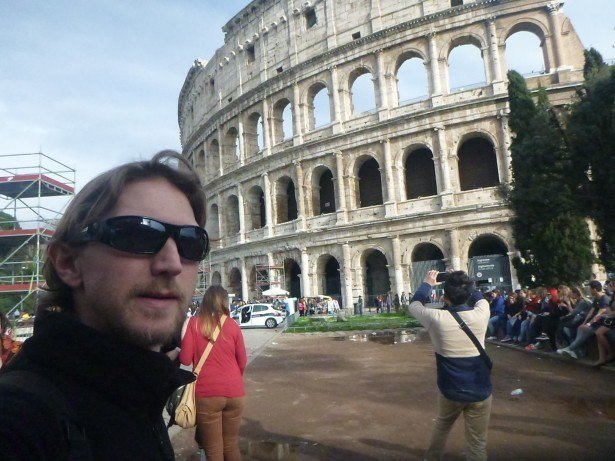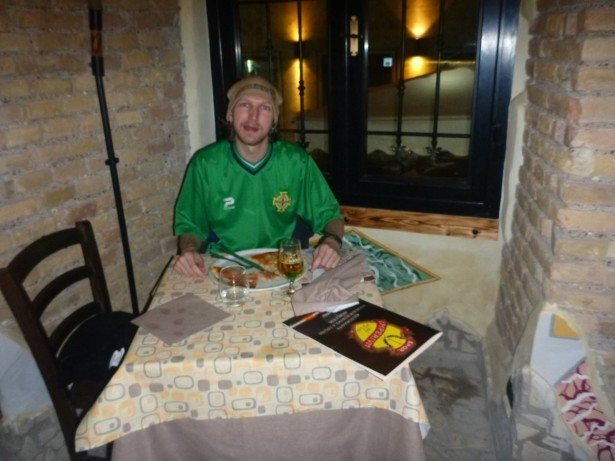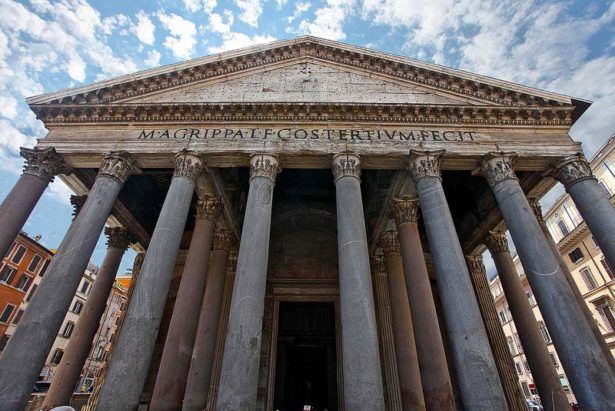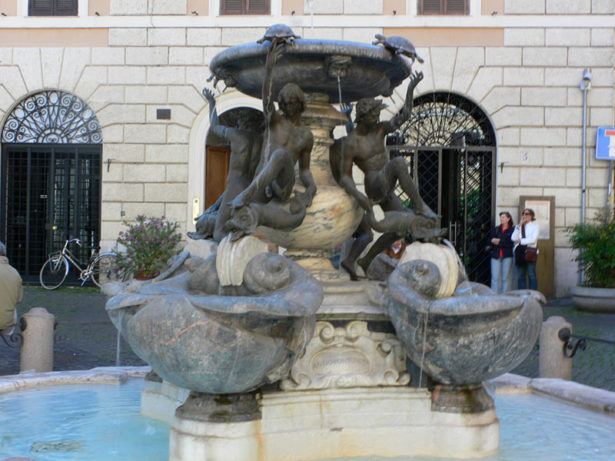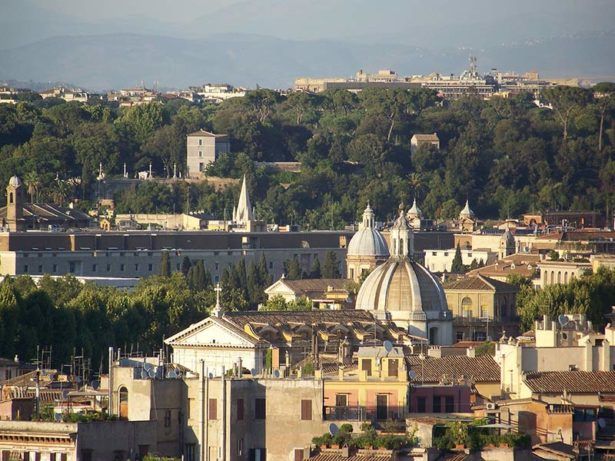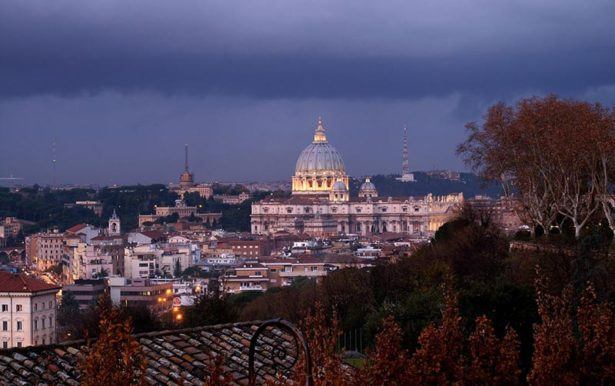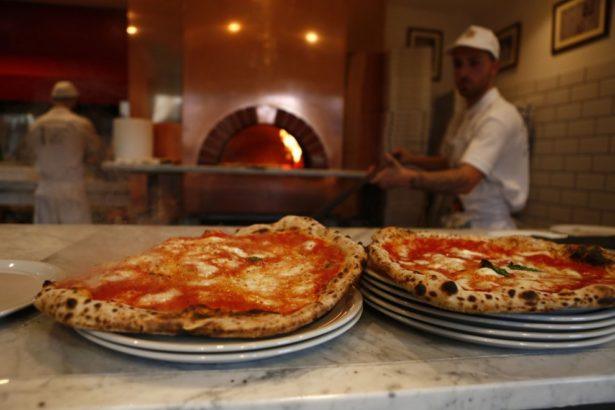Rome holds an entire world of attractions and is always among the most visited destinations in Italy, moreover is the biggest Italian city, so it’s better to plan in advance your route to enjoy this place to the utmost.
The first thing to do is choosing a comfortable holiday home close to the most popular sights: I entrusted myself to Wonder Where To Stay, an agency specialized in vacation apartment’s rental in Rome that helped me to enjoy my stay avoiding idle times and queues.
Rome is amazing if you know where to go by walk, even if you have only a weekend!
Start from Pantheon
Photo 1 Pantheon Credits: Marc Biarnès https://flic.kr/p/goGmx7
Just a few steps from Navona Square and largo di Torre Argentina rises the Pantheon: this temple, dedicated to all the gods of the Ancient Rome, has a very peculiar feature, an oculus in the dome, 9 mm wide, the only source of light in the interior.
The floor has a drainage system, including 22 drillings that handle the rain, so it’s possible to visit the temple also when it’s raining!
Some interesting things to know about Pantheon: it was rebuilt by Hadrian between 118 and 128 A.D. and afterwards converted in a Christian church in VII century, named St. Mary and the Martyrs. Furthermore, since 1870 is a memorial of Italy’s Kings and hosts the mortal remains of the painter Raphael (Raffaello Sanzio). This monument is considered an architectural masterpiece for its harmony and the combination of different styles, in fact it influences other buildings (like the Panthéon in Paris and the Basilica di Santa Maria del Fiore in Florence) and was celebrated also by Stendhal in his book Promenades dans Rome.
Check the official website for opening hours and guided tours: www.pantheonroma.com/en/.
Visit Jewish Ghetto
Photo 2 Turtle Fountain Credits: Heather Cowper https://flic.kr/p/4JTHqi
I think that one of the most enchanting corners of Rome is the Roman Ghetto, close to the River Tiber and easily reachable by walk from the Pantheon. It was established in 1555 and now is home to the new Synagogue of Rome, erected after the demolition of the ghetto, happened in 1888.
Until 1870, in fact, the Jews had to live in the ghetto, then after the end of the Papal States, the ghetto walls were torn down.
One of my favorite fountains of the Eternal City (along with Trevi Fountain, of course!) is located here: don’t miss to see the Turtle Fountain, which has a design adapted from ancient Roman fountains and decorations (the young men and the dolphins) that are in late Italian Renaissance style.
The bronze turtles were added only in 1659, when the fountain was restored, and are attributed to Gian Lorenzo Bernini.
The turtles are very realistic and the small square where the fountain is located, Piazza Mattei, it’s a sort of haven in the middle of Rome center, far from crowd and traffic.
Enjoy a breathtaking sight from the Janiculum
Photo 3 Gianicolo Credits: Stefano Petroni https://flic.kr/p/5yz6bU
Rome is the called “the city of the Seven Hills”, but there is one that isn’t figure among these, the Janiculum (Gianicolo), one of the most breathtaking views of the Capital.
Below this hill there is Trastevere district, while at the top you can admire the statue of Giuseppe Garibaldi: Gianicolo, in fact, today hosts a memorial of Risorgimento, a crucial period for Italian history.
The viewpoint of the hill, which name derives from the god Janus, gives a stunning panorama above Rome: my advice is to take advantage of it in a sunny day!
Don’t forget to go there for a very peculiar Roman ritual. Right here you can see the Gianicolo cannon, that since 1847 daily fires at noon to signal the exact time.
Then, continue your walk across the park and you will see the marble busts that depict the followers of Garibaldi and other Italian patriots. Another important monument is the Fontana dell’Acqua Paola, also known as il Fontanone.
This fountain, built with granite and white marble, dates back to XVII century and is a sublime example of baroque style, built with ruins derived from Forum of Nerva and the ancient St. Peters’ Basilica.
Photo 4 San Pietro visto dal Gianicolo Credits: Gianluca Carnicella https://flic.kr/p/bE8Bk
The best pizza from Naples…to Rome!
Photo 5 Pizzeria da Michele Credits: Foto di Franz Benvenuti/F3Press
If you are a foodie, Rome is an authentic paradise of genuineness: here there are starred restaurants, typical trattoria, historic bars and popular pizzeria.
If you like pizza, I recommend to taste the different specialties of this Italian delight: the Roman pizza is the thinnest one, the Neapolitan pizza boasts another kind of dough and is one of the most famous Italian products in the world.
In Rome has recently opened a historic pizzeria from Naples, Da Michele; you have to go in Via Flaminia, 80 (unfortunately reservations aren’t available) to try the real Neapolitan pizza, made exclusively with local ingredients.
Da Michele is located close to Piazza del Popolo, so it could be an ideal last stage after a tour in the historic center; celebrate the high quality of Italian food is one of the best ways to enjoy your holiday in the Eternal City. You can also delve into the Vatican City.
Photo 6 Ponte Milvio Credits: Alessandro Vasaturo https://flic.kr/p/7u5ex2
Photo 7 Trevi Fountain Credits: Sean MacEntee https://flic.kr/p/fywfv3

